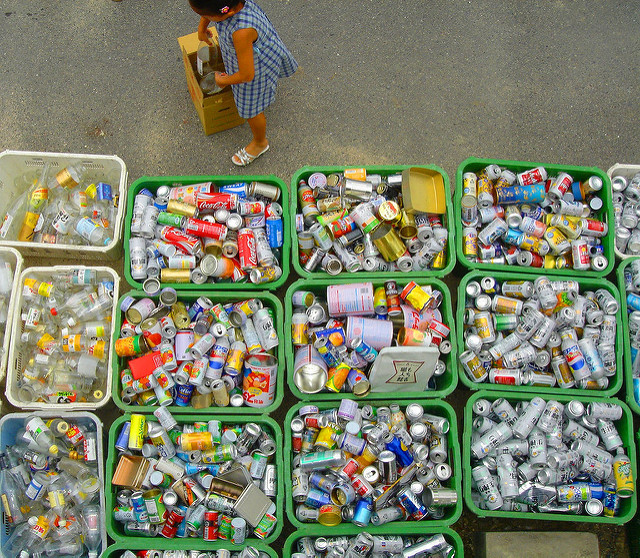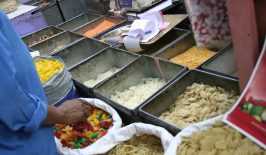Kamikatsu, in the south of Japan, is set to be completely zero waste by 2020. How and why are they such pioneers when it comes to waste reduction? And could their approach work elsewhere?
We all know that to minimize our personal ecological footprint, we have to focus on the three R’s: recycle, reduce and reuse. But sometimes, even though we’re conscious of what’s environmentally “right” and “wrong”, a need for convenience can get the better of us. We resort to a plastic bag when out shopping because we forgot the reusable one, plastic packaging gets mixed up in the organic waste and we chuck an old pair of jeans in the bin because we don’t have time to fix them. And when we do manage to do everything as we’re supposed to, we can’t ever be sure that the effort has been worth it. Sure, we chuck the carefully-separated rubbish into the right coloured bin, but what happens to it after that? Even with effective recycling programs and waste management – the thought of a zero-waste lifestyle seems like something that’s maybe possible on an individual level, but that would be pretty much impossible in a city.
However, it’s been 15 years since the residents of Kamikatsu, a small town in the south of Japan, in the Tokushima Prefecture on Shikoku Island, decided to embark on a zero-waste program. The move wasn’t inspired by purely environmental motives. The town had been forced to close down its incineration plant in the early 2000s, after the government brought in new regulations. With the next incinerator miles away, it became cheaper to recycle waste, rather than transporting it and then burning it. Residents were forced to rethink their waste disposal program.
So now, rather than sending their garbage to incinerators or landfills, they focus on recycling as much as they can instead. “What we can sell as resources becomes town revenue — [everything else] we try to process at a low cost. If all the waste collected turns into resources, it’s zero-waste,” the town waste station’s manager, Kazuyuki Kiyohara, told ABC News.
The recycling process requires residents to separate their waste out into a huge 42 different categories, and the town doesn’t offer a curbside collection service either – individual households are in charge of bringing their waste to the recycling centre themselves (after they’ve washed it, of course). Once they’re there, they sort it into the different categories – such as aluminum cans, steel cans, paper cartons, and paper flyers. Recycling centre workers are on hand to help them if they have any doubts about where something should go.
The recycling station has also a recycling shop, like a swap shop, where people can leave things items that they don’t want or use anymore like clothes, toys, home appliances or even furniture and take home other things that they find there. Nearby, local women make products from waste products at a local factory, like teddy bears from old kimonos.
The program has helped the town not only to save money – about one third of the costs it used to have from incineration – but also to raise citizens’ consciousness and make them think about waste when they buy things, or before they throw them away. “I gained a sense of taking care of things,” shop owner Takuya Takeichi told Great Big Story. “It’s strange but simple, I am constantly thinking now before I trash anything. We may have more of a burden, but I think we all gained richness in our minds.”
It’s interesting to consider whether a scheme like this could work in another country. Could another city make recycling so inconvenient and so laborious a process that it changes peoples’ lifestyles and ways of thinking and actually deters people from unneccesary consumption in the first place?
In fact, like Kamikatsu, several cities are already following its footsteps: the capital of Slovenia, Ljubljana, is a frontrunner in the EU, with recycling rates that have skyrocketed up to way above EU targets within just a decade, San Francisco has diverted its garbage from landfills by more than 80 percent as part of its own plan to be zero waste by 2020 and New York and San Diego also have their sights set on becoming zero waste.
There are ambitious plans afoot. But what is required, alongside state legislation, consumer engagement and effective recycling schemes? Producers need to demonstrate their responsibility too, with better, more sustainably designed products, and responsibility for the entire life-cycle of their products – including recycling and take-back schemes.





